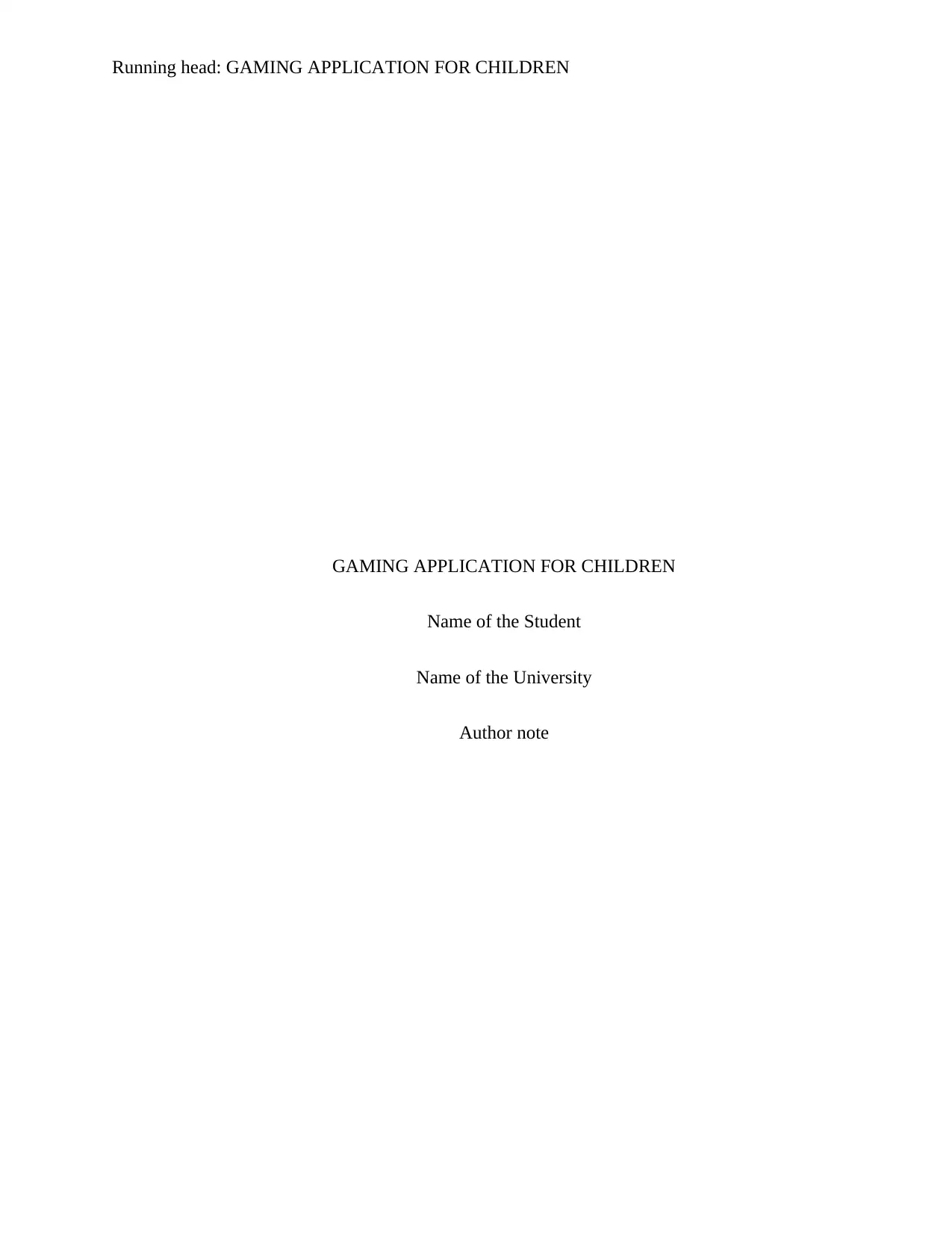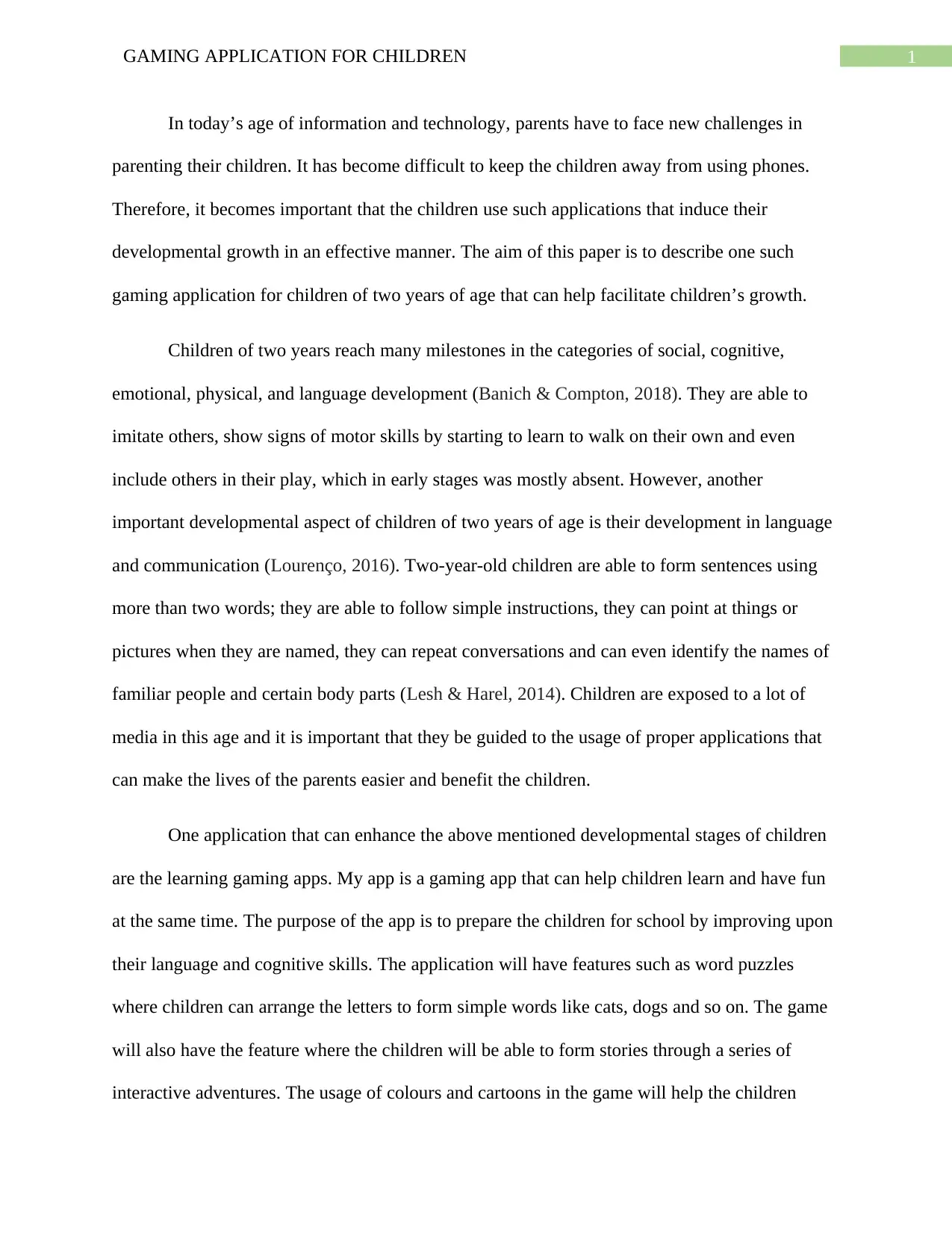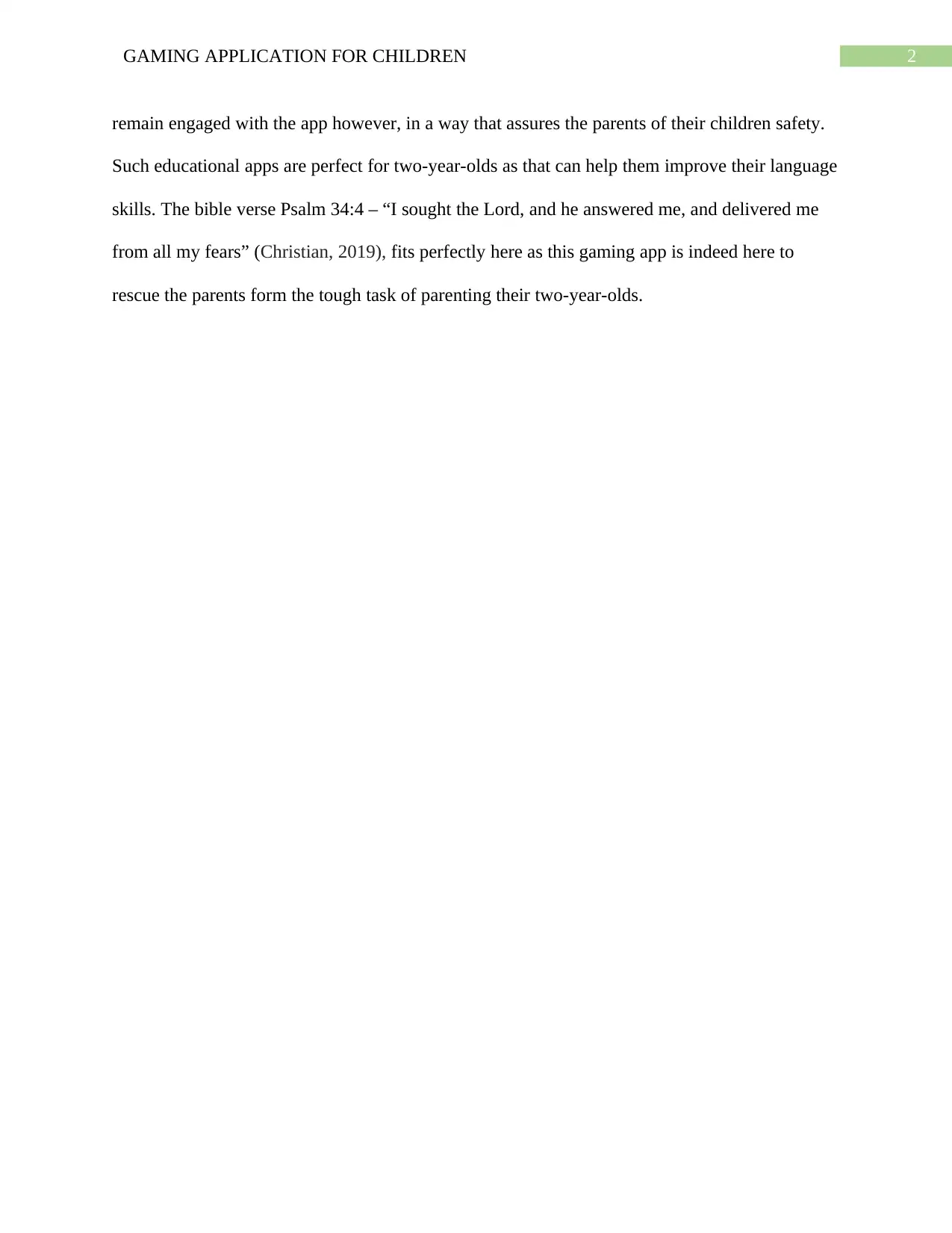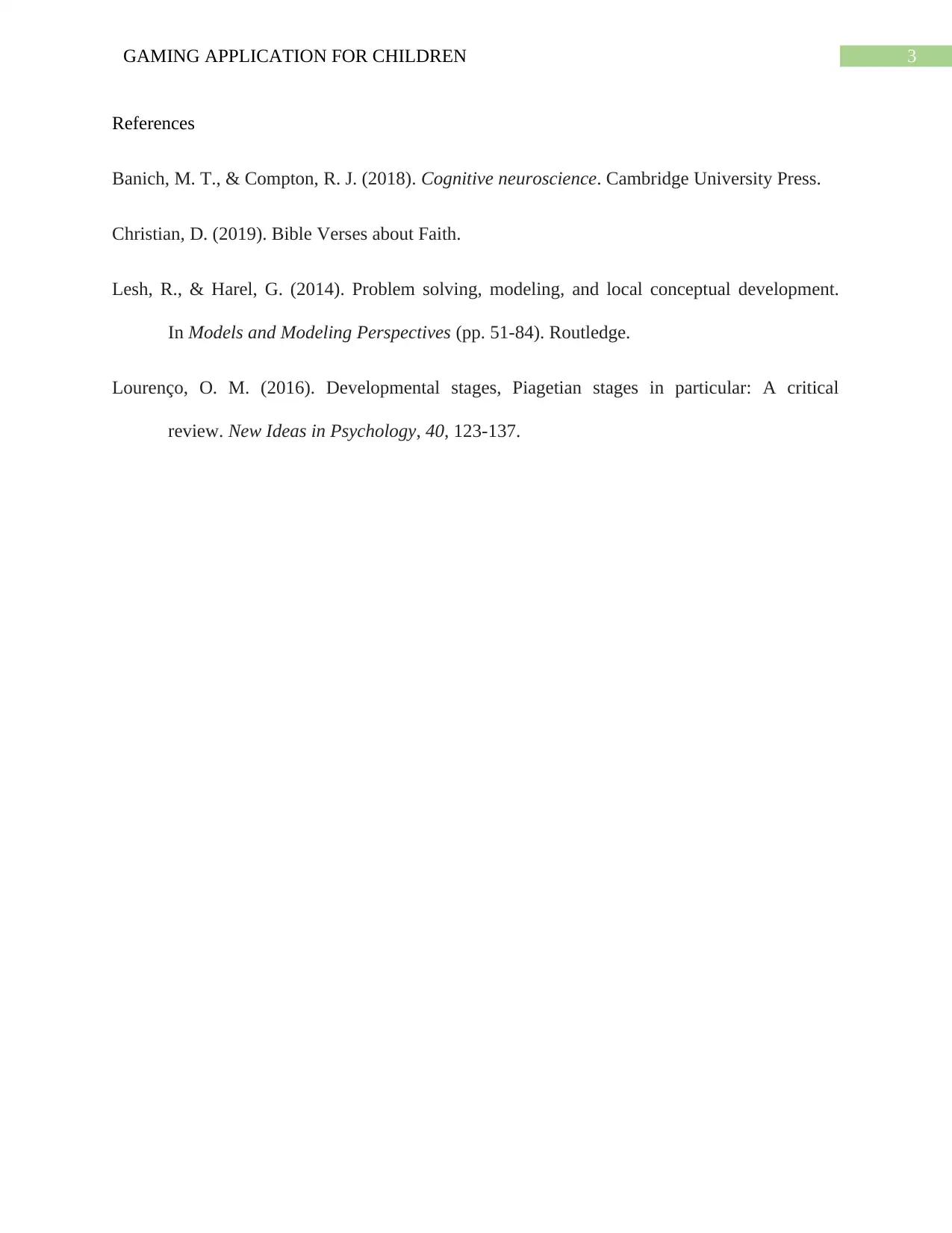PSYC 101 Essay: A Gaming Application for Early Childhood Development
VerifiedAdded on 2022/08/01
|4
|614
|56
Essay
AI Summary
This essay, created for a PSYC 101 assignment, describes a gaming application designed for two-year-old children. The app aims to facilitate cognitive and language development, preparing children for school through interactive word puzzles and story-building adventures. The essay identifies the target audience and discusses key developmental markers for this age group, supported by citations from the course textbook and scholarly articles. The application is designed to be safe and engaging, utilizing colors and cartoons to maintain children's interest while promoting learning. The essay also references a Bible verse to emphasize the app's role in supporting parents during early childhood development.
1 out of 4











![[object Object]](/_next/static/media/star-bottom.7253800d.svg)